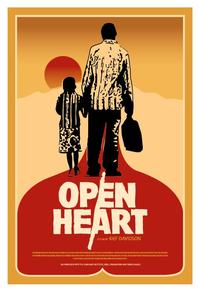
Source here
It’s been a while since I last posted.
I came across an article today about a film about rheumatic heart disease, entitled, Open Heart.
It is the story of eight Rwandan children who leave their families behind and embark on a life-or-death journey to receive high-risk open-heart surgery in Africa’s only free-of-charge, state-of-the-art cardiac hospital, the Salam Center run by Emergency, an Italian NGO. It reminded me of the power of story-telling – it is exceptional! See the compelling trailer of the film here.
I have never been more excited about the impact stories can have on health communication and education!
I also wanted to share an extract from a blog post I read a couple of months ago that’s all about the power of story-telling, which has become an important topic for me in better understanding effective health communication strategies and it’s become a whole chapter in my thesis.
See the full blog post, written by Sarah Byrnes, Senior Health Communications Associate at IQ Solutions’s here.
Storytelling Focuses the Issue
As someone with a strong academic and journalism background, I’m hardwired to stress data and statistics in my writing. Data are necessary, of course, to establish credibility for your proposition or argument. Credibility is important, but data alone won’t resonate with your audience. If the message doesn’t resonate, you won’t see any change in behavior.
“No one ever marched on Washington because of a pie chart.” – Andy Goodman, Storytelling as a Best Practice.
So, what does resonate?
A compelling story.
Presenting and explaining a public health issue within the framework of storytelling gives the audience the context they need to understand the issue and see the big picture—including the causes, consequences, and opportunities for change. Stories put a face on an issue, eliciting an emotional response from the audience. Whether it is empathy, anger, or happiness, emotions increase the salience of an issue, make it more memorable, and provoke action or behavior change.
“Stories Are Facts With Souls”
Suzanne Gaulocher, a presenter in the storytelling session at Centers for Disease Control and Prevention’s (CDC’s) 2012 National Conference on Health Communication, Marketing, and Media, said, “Stories are facts with souls.” This gets to the essence of why stories are so important in our society and how powerful they can be in public health.
Stories enable us to engage with new knowledge and broader perspectives, because we encounter them in the familiar territory of human experience.

Source here
